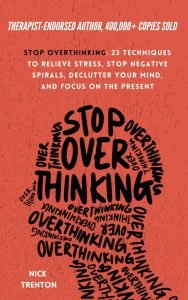Introduction to Stress and Anxiety
At times, you may find yourself feeling overwhelmed by the pressure of your responsibilities or unexpected events. It’s important to discern whether you’re experiencing stress, anxiety, or a mix of both. Knowing the nuances between these two psychological responses is crucial in determining when you should seek help and how you can effectively manage them.
Understanding the Connection Between Stress and Anxiety
Stress and anxiety, while closely related, are distinctive experiences. Stress typically arises in response to an external cause, such as a looming deadline or a conflict with a colleague. It is a natural reaction that usually dissipates once the particular situation has been resolved. On the other hand, anxiety may linger beyond the external stressor and does not always have an identifiable cause. Anxiety could signal an underlying anxiety disorder, especially if it starts to disrupt your day-to-day life.
It’s pivotal for you to pay attention to how your body and mind respond to stress. Notice if the anxiety persists or increases over time, as it carries physical ramifications. For instance, you may encounter disturbances in your sleep patterns or changes in your immune system’s functioning. Being cognizant of these symptoms and understanding how they affect your overall health are steps forward in managing your well-being.
Identifying Your Personal Stress Triggers
Every individual faces unique stress triggers. It is beneficial to observe and take note of the situations that make you feel particularly stressed or anxious. Such self-awareness will empower you to mitigate these feelings before they amplify. Are your triggers work-related, personal relationships, financial concerns, or perhaps health-related issues? Reflect on your past experiences and consider maintaining a journal to document patterns that might emerge.
Should you find that stress and anxiety are becoming constant companions, not just occasional visitors, it’s likely time to explore support options. Whether it’s professional therapy, lifestyle adjustments such as mindfulness practices, or other stress-reduction techniques, taking proactive steps is essential. Early intervention can prevent the escalation of stress and anxiety into more significant health issues, including mental illnesses like depression.
Your mental health is as important as your physical health. Recognize that seeking help is a sign of strength and a proactive step towards improving your quality of life. Listen to your body and mind – if they indicate that something is off, honoring those signals by getting support is a wise and brave decision.
Understanding when stress transitions into anxiety is a journey of self-awareness. Stress in moderation can be a motivating force, but it’s important to monitor its impact on you. If the anxiety you experience becomes constant or overwhelming, it may be wise to seek help, as this could be an indication of an anxiety disorder. Stay vigilant of persistent stress and anxiety, as they can have far-reaching effects on your physical and mental health.
Understanding Stress and Its Triggers

In managing stress and anxiety, it’s crucial to be aware of the common stressors in your life. Recognizing these triggers is the first step towards developing effective coping strategies. While stress can stem from various sources, it’s often exacerbated by particular patterns or conditions. By identifying these and proactively addressing them, you can minimize their impact on your well-being.
Social Interaction and Performance Anxiety
Feeling anxious about social situations or public speaking is a familiar source of stress. If you find yourself fretting about upcoming events or interactions, there are strategies to help alleviate this pressure. Preparation is key—rehearse your speeches or plan your responses in social settings. Additionally, practice deep breathing or mindfulness techniques, which can lower your heart rate and help you remain calm.
It’s also important to build a strong support system. Surround yourself with understanding friends, family, or colleagues who can offer reassurance and perspective. Remember, perfection isn’t the goal; it’s about progress and learning to navigate your discomfort with confidence.
Financial Worries and Economic Stress
Financial concerns are a significant stressor for many. The burden of debt, the uncertainty of employment, or simply managing day-to-day expenses can weigh heavily on your mental health. To alleviate financial stress, start by creating a realistic budget. Track your spending and set financial goals that are attainable.
Seek professional advice if necessary, and consider financial planning resources or workshops that can equip you with better money management skills. Remember, small steps can lead to significant changes. Focus on what you can control and take action towards financial stability.
Workplace Challenges and Professional Burnout
The demands of your profession can contribute to chronic stress, particularly if you feel overwhelmed by workload or underappreciated. Managing workplace stress requires a proactive approach. Prioritize your tasks, set boundaries to maintain a healthy work-life balance, and learn to say “no” when necessary. It’s vital to take regular breaks throughout the day to recharge and prevent burnout.
If possible, discuss flexible working arrangements with your employer. The possibility of telecommuting or adjusting your work hours can reduce stress significantly. Seek feedback and recognize your achievements to foster a sense of accomplishment and self-worth.
Always remember, while these methods can help manage stress, they should complement, not replace, professional mental health support if needed. Taking action to relieve stress is important, but recognizing when you need additional help is a sign of strength, not weakness. By addressing stress proactively, you empower yourself to live a healthier, more balanced life.
Environmental Factors That Can Worsen Anxiety
Noise Pollution and Crowded Spaces
As you navigate your daily life, it is important to consider the role of your environment on your stress levels. Noisy surroundings and highly populated areas can significantly elevate anxiety. You may find that excessive noise interrupts your concentration, disrupts sleep, or simply elevates your stress hormones. Similarly, crowded spaces might trigger a sense of overwhelm or unease.
To address noise pollution, consider creating a quiet sanctuary at home where you can retreat and recharge. Utilize noise-cancelling headphones or earplugs if you must operate in a noisy environment. When possible, take breaks in nature or quiet settings to reset your stress baseline.
Crowded spaces often require strategic planning. Try to schedule activities during off-peak hours and seek out less populated routes or venues. Breathing exercises can also be a powerful tool to maintain your calm in such environments.
Lack of Personal Space and Clutter
Your immediate surroundings play a pivotal role in your mental wellbeing. Lack of personal space can leave you feeling trapped or agitated, thus adding to your stress. It’s crucial to carve out a zone in your home or workspace that is exclusively yours, allowing for a sense of control and solitude.
Furthermore, clutter is not just a physical nuisance but a visual stressor as well. A disorganized environment can make it difficult for you to focus and can trigger anxiety. Tackling clutter might seem daunting, but by organizing your space, you can create a peaceful and efficient environment. Start by decluttering and organizing one area at a time, and maintain a system to keep your space orderly.
Remember to prioritize your comfort in your personal space. Customize your area with items that bring you joy and peace, such as plants, photographs, or art. This can help make your personal space a true respite from the chaos that might surround you elsewhere.
In dealing with stress and anxiety, taking control of what is within your reach becomes vital. While not all environmental stressors can be eradicated, being aware of their impact and implementing small, manageable changes in your environment can make a significant difference in your anxiety levels. These strategies are meant to aid in your daily coping, but if you find that stress persists, consulting a mental health professional can provide the specialized support you may need. Your mental health is paramount, and taking action to protect it is a wise and necessary venture.
Relationship-Induced Anxiety
Stress can often be traced back to the quality and nature of your relationships. From personal connections to professional networks, the interactions you engage in regularly can play a significant role in your mental and emotional well-being. It is vital to learn how to handle these relationship dynamics effectively to maintain a peaceful and productive life.
Navigating Difficult Personal Relationships
Personal relationships, whether with family, friends, or romantic partners, can be complex and occasionally stressful. You are encouraged to communicate openly and honestly to alleviate misunderstandings which often lead to tension. By expressing your needs and setting clear boundaries, you create a foundation for healthier interactions.
Active listening is also essential. It’s not just about voicing your perspective but also understanding where the other person is coming from. Remember, conflicts are normal, but it’s the way you handle them that counts. Seek compromise where possible and don’t shy away from professional counseling if conflicts persist. Relationship counseling isn’t just for couples; it can also be beneficial for any meaningful relationships in your life.
Managing Professional Relationship Stress
In your professional life, relationship dynamics can vary greatly. Networking, teamwork, and management relationships all come with their specific stresses. It’s important to maintain a degree of professionalism at all times, which helps manage these stresses effectively.
Build positive relationships by being respectful, reliable, and cooperative. Networking, for instance, should not be viewed solely as a business transaction but as an opportunity to forge genuine connections that can support your career growth. In teamwork scenarios, capitalize on the strengths of your colleagues and be willing to lend your expertise when necessary.
Regarding superiors or employees, strive for clear and regular communication to preclude potential conflicts. If stress arises, tackle it head-on by seeking constructive feedback and resolution. Remember, professional relationships can impact your job satisfaction and performance, so it’s crucial to invest time and effort into managing them wisely.
As with all aspects of stress management, be alert to the warning signs of relationship-induced anxiety. When you find your relationships consistently draining, take a step back and assess what changes are necessary. Always value your mental health just as much as you value these relationships. While you invest energy into making your connections work, ensure that you are not neglecting self-care in the process. Your peace of mind is key to sustaining not only the relationship in question but also your overall quality of life.
Health-Related Anxiety Stressors
Your physical health plays an integral role in managing stress and anxiety. When you’re burdened with concerns about your well-being, it can take a significant toll on your mental state. Recognizing these health-related anxiety stressors and knowing how to address them is crucial for maintaining both physical and emotional balance.
Concerns About Illness and Well-being
It’s common to feel anxious about health, especially when dealing with or fearing illnesses. Whether it’s a chronic condition or concerns about catching a contagious disease, the worry over your health can be debilitating. It’s important to stay informed but equally vital not to overwhelm yourself with too much information, especially if it’s not from reliable sources.
You should establish a productive dialogue with your healthcare providers. They can offer you tailored advice and factual information, helping you to differentiate between valid concerns and unnecessary worries. If health-related anxiety becomes overwhelming, consider speaking to a mental health professional who can provide techniques to manage this stressor effectively.
Moreover, utilizing resources like support groups where you can share concerns and learn from others in similar situations may provide comfort and practical advice. These measures can help reduce feelings of isolation and the burden of anxiety.
The Impact of Unhealthy Lifestyle Choices
Unhealthy lifestyle choices, such as poor diet, lack of exercise, or inadequate sleep, can amplify stress and anxiety. Being mindful of your daily habits is imperative for stress management. You should strive to create a balanced diet, engage in regular physical activity, and establish a consistent sleep routine. These fundamental health practices are not just good for your body but also essential for mental well-being.
Exercise, in particular, is a powerful stress reliever. It not only improves your physical health but also boosts endorphins, which are natural mood lifters. Even a daily walk or short bouts of exercise can make a noticeable difference in how you handle stress.
Furthermore, reducing consumption of stimulants like caffeine and nicotine can lessen anxiety. If you struggle with substance abuse or other unhealthy behavioral patterns, seeking support through counseling or addiction services is a courageous and practical step toward better stress management.
It’s also important to schedule time for relaxation and activities you enjoy. Whether it’s reading, meditating, or gardening, having an outlet for stress through hobbies and relaxation techniques is crucial. These activities provide a break from daily stressors and improve your resilience to anxiety-inducing situations.
By prioritizing your health, becoming proactive in dealing with concerns, and making conscious lifestyle choices, you can effectively minimize the impact of health-related stressors on your life. Remember, small, consistent changes to your daily routine can lead to substantial improvements in your mental health and stress levels.
Techniques for Identifying Stress Triggers
Understanding what triggers your stress is critical to developing a personalized strategy for managing it. Identifying these triggers isn’t always straightforward, but with a few key techniques, you can become more aware of what specifically prompts your stress responses.
Self-Monitoring and Journaling
You can begin by keeping a stress diary. Every day, take the time to record situations, events, or individuals that cause you to feel stressed. Be specific about the time, place, people involved, and what you were doing. Also, note down your feelings, thoughts, and physical reactions. Over time, patterns will emerge, and you’ll be better equipped to anticipate and prepare for stress-inducing situations.
By recognizing these patterns, you instill in yourself a sense of control and understanding. You shift from being reactive to proactive, and this alone can markedly decrease your stress levels. By pre-empting stressors, you can employ coping techniques ahead of time or even avoid certain triggers altogether. Journaling also provides an outlet for expressing your emotions, which in itself can be a therapeutic practice.
Recognizing Physical Symptoms and Patterns
Your body often sends signals of stress before you’re consciously aware of it. Common physical symptoms include headaches, muscle tension, fatigue, or changes in your sleep patterns. If you notice these symptoms, pause to consider what your thoughts or environment were leading up to these physical changes.
In your professional life, you may find that certain tasks or interactions with specific colleagues consistently precede these symptoms. At work, it can be useful to schedule regular breaks, especially during or after interactions or tasks that tend to be your triggers. In your personal life, if you identify recurrent scenarios that lead to stress, it may be time to engage in more in-depth conversations with loved ones or seek external guidance to manage these triggers more effectively.
Stress is an inevitable part of life, but you don’t have to let it overwhelm you. By identifying your triggers with self-monitoring and recognizing patterns, you become better at managing stress, leading to improved health and well-being. Take empowered steps towards a less stressful life by being attentive to the causative factors and your body’s responses to them. Remember, your well-being matters, and understanding the roots of your stress is a significant stride in safeguarding it.
Mindfulness and Stress Reduction Strategies

Managing stress effectively often involves a practice known as mindfulness. By paying attention to the present moment without judgement, you can shift away from harmful ruminations that often accompany stress. Mindfulness strategies have been proven to reduce cortisol levels, a hormone that’s heavily associated with stress, thereby fostering a more relaxed state of being.
Implementing Mindfulness Practices
As you navigate your daily routine, there are mindful techniques that can be seamlessly integrated into your schedule. These include focused breathing exercises, guided imagery, and body scan meditations, which can all be done with limited time and resources. Even during a busy workday, you can take a few moments to practice deep breathing or visualize a tranquil environment, which can instantaneously contribute to stress alleviation.
The purpose of these practices is to ground you in the current moment, often proving to be an oasis of calm in the midst of hectic circumstances. They aid in interrupting the flow of constant thoughts that often lead to stress and anxiety. As you make mindfulness a regular practice, you may find that it not only lowers your stress in the immediate moment but also helps to build resilience against future stressors.
To start implementing, aim to dedicate a few minutes each morning or evening to mindfulness exercises. Perhaps begin with a simple five-minute breathing session—inhaling for four counts, holding for seven, and exhaling for eight. This technique, known as the 4-7-8 breathing method, is particularly effective for calming the nervous system.
The Role of Exercise in Reducing Anxiety
Your physical health plays a key role in how you experience and manage stress. Regular physical activity is one of the most effective ways to combat the negative effects of stress. Exercise releases endorphins, which are natural mood lifters, and it also can act as a form of active meditation, keeping you present and focused on your movements rather than your worries.
You don’t necessarily need intense workouts to benefit from exercise-induced stress relief. Activities such as walking, cycling, yoga, or swimming can be just as effective. The key is consistency and enjoying the activity you choose. Integrating exercise into your daily life can be as simple as taking the stairs instead of the elevator, going for a walk during your lunch break, or engaging in a stretching routine before bed.
In professional contexts, you might consider standing or walking meetings, which not only incorporate movement into your day but may also spur creativity. Moreover, encouraging a culture of wellness in the workplace can enhance the overall atmosphere and reduce collective stress levels.
By incorporating both mindfulness and physical activity into your stress management repertoire, you can significantly mitigate daily stress and improve overall mental health. Remember, the journey to a less stressful existence involves acknowledging and working through your unique triggers, practicing mindfulness, and maintaining an active lifestyle. As these become integral aspects of your routine, you will likely witness a notable decrease in anxiety and an improvement in your ability to manage stress in your professional and personal life.
Professional Help and Resources
When to Seek Professional Advice
As much as individual strategies and adjustments can significantly reduce your stress, there are circumstances where you might need to consider professional advice. If you find that the stress remains unmanageable despite your self-help efforts, it is important to reach out to a mental health expert. When stress begins to interfere with your daily function, causes you to lose joy in activities you once loved, or results in physical symptoms such as persistent headaches, sleep disturbances, or significant weight fluctuation, seeking professional advice is a wise step.
A mental health professional can work with you to develop tailored strategies that address your unique situation, whether you’re coping with work-related stress, relationship difficulties, or past traumas. Remember, reaching out for professional help isn’t a sign of weakness, but rather an act of strength. By acknowledging the complexity of your stress and taking action, you are putting your health and well-being first. Experts are equipped with therapeutic tools like cognitive-behavioral therapy (CBT), mindfulness training, and stress management techniques that you might not have access to on your own.
Additionally, when stress is connected to discrimination due to race, gender, socioeconomic status, or LGBTQIA+ identity, a professional can offer support in navigating these complex layers of stress. Counselors or therapists who specialize in these areas are particularly adept at understanding these nuances and can offer the compassionate guidance you might need.
Utilizing Online Tools and Support Groups
In today’s digital age, a plethora of online tools and resources are at your disposal to assist in managing stress. These range from meditation apps and stress-management websites to online support groups and forums. Such tools can provide immediate relief and offer the convenience of accessing help from anywhere at any time. Engaging with mobile apps that offer guided relaxation techniques or that help to monitor your stress levels can provide both insights and practical coping mechanisms.
Online support groups present another valuable resource, particularly for those who may feel isolated in their stress or for whom in-person therapy is not accessible. Through these platforms, you can connect with others who are experiencing similar challenges. Sharing your experiences and hearing from others can foster a sense of community and provide the social support that is crucial in managing stress. It’s important, however, to ensure that the groups are led by professionals or are endorsed by reputable mental health organizations to ensure you are receiving constructive and reliable guidance.
Remember, while these tools can be supportive, they are meant to complement professional advice, not replace it. They serve as additional resources that you can integrate into your larger stress management plan. By taking advantage of professional help and the wealth of online resources available, you adopt a comprehensive approach to manage your stress, laying the groundwork for a healthier, more balanced lifestyle.
Understanding Your Stressors and Strategies for Management
Summary of Strategies to Avoid Stressors
You have a pivotal role in identifying and tackling the stressors in your life. Stress can stem from various sources, influenced by factors such as your level of social support, coping style, and personality type. Discrimination due to race, gender, perceived gender, LGBTQIA+ identity, socioeconomic status, or any other form, as well as childhood trauma and your profession can all contribute to heightened stress levels.
Understanding these unique triggers is essential as it allows you to custom-fit your stress management strategies more effectively. Minimizing the chronic stress of daily life supports your overall health—this means taking preventative measures and adjusting your routines towards a healthier lifestyle.
Concrete strategies include setting boundaries in your professional and personal life, saying no to excess responsibilities, and prioritizing tasks. Moreover, developing a strong support network to share your feelings and vent frustration is invaluable. You can also implement lifestyle changes such as regular physical activity, a balanced diet, and adequate sleep to fortify your body against the impacts of stress.
Encouraging Personal Growth and Resilience
Building resilience is a critical part of coping with stress that empowers you to bounce back from challenges. Engage in activities that reinforce your mental fortitude, such as mindfulness practices, journaling, and cognitive-behavioral techniques which train your mind to respond to stressors more positively.
Practice self-compassion and acknowledge your struggles without self-judgment. Set realistic goals and celebrate your accomplishments, which fosters a sense of self-efficacy. When you encounter situations that cause you significant stress, analyze them from different perspectives to identify growth opportunities and lessons learned.
Remember, investing in your personal development is a continual process that not only reduces your current levels of stress but also equips you with tools to handle future pressures. You possess the ability to transform your response to stress, molding it into an avenue for personal growth and resilience. Seeking professional advice when necessary serves as a bridge to a deeper understanding of your stress response and a more profound personal development journey.
Always bear in mind that you are not alone in experiencing stress. Whether through professional help, online resources, or personal strategies, a holistic approach to managing stress increases your chances for a more fulfilled and balanced life. Stay proactive in your stress management quest and remember that your health and well-being should take precedence in the face of life’s inevitable pressures.
Related Articles
- 7 Stress Supplements: Herbs to Reduce Stress and Find Inner Peace
- Choosing the Best Stress Relief Supplement: Your Ultimate Guide to Stress Management and Anxiety Reduction
- Systemic Formulas: The Premier Formula to Reduce Stress with Top Stress Supplements
- 16 Simple Ways to Relieve Stress
- What Triggers Anxiety? 11 Causes That May Surprise You
- Stress relief


